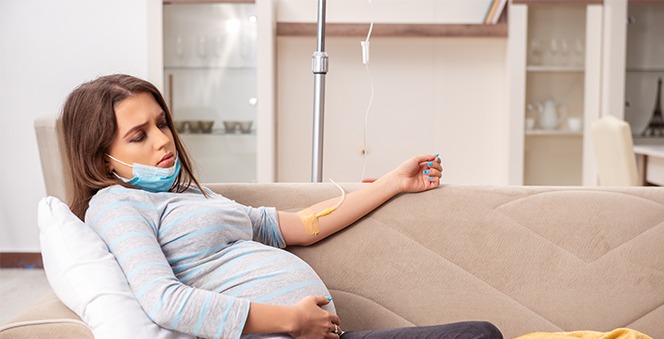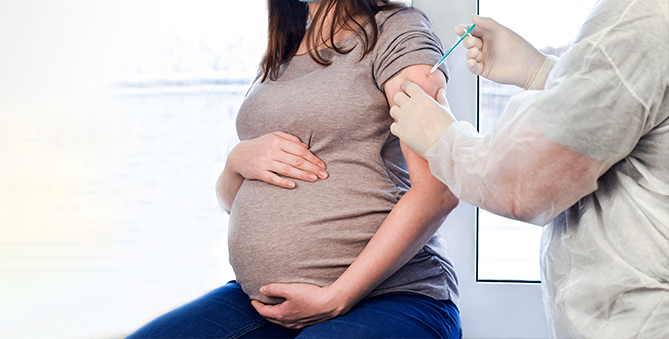You may develop anemia while you conceive. Once you develop anemia, there will not be enough healthy red blood cells left in your body to carry oxygen to your tissues and to your baby.
Once pregnant, your body produces more blood to support the growth of your baby. If you don’t get enough iron or other nutrients, your body would not be able to produce the required amount of red blood cells to make additional blood for the baby.
It’s okay to have mild anemia when you are pregnant. But one may have more severe anemia from low iron or vitamin levels in the body.
You may feel tired and weak during anemia. If it is severe and untreated, it can pose risk of serious complications like preterm delivery.
Here’s what is needed to be known about the causes, symptoms, and treatment of anemia during pregnancy-
TYPES OF ANEMIA DURING PREGNANCY
Many types of anemia can develop during pregnancy. These include:
• Iron-deficiency anemia
• Folate-deficiency anemia
• Vitamin B12 deficiency
Iron-deficiency anemia :- This type of anemiais developed when the body doesn’t have adequate iron to produce required amounts of hemoglobin. It is responsible for carrying oxygen from the lungs to the rest of the body.
In iron-deficiency anemia, the blood is unable to carry enough oxygen to tissues all throughout the body.
Iron deficiency anemia is most common in pregnancy.
Folate-deficiency anemia :- Folate is found in green leafy vegetables A type of B vitamin. Our body requires folate to produce new cells, including healthy red blood cells.
During pregnancy, extra folate is needed. But sometimes women don’t receive much from their diet. In this case, the body can’t make enough red blood cells to carry oxygen to tissues all throughout the body. Man-made supplements of folate are available, they are called folic acid.
Vitamin B12 deficiency :- Vitamin B12 is necessary for the body to form healthy red blood cells. When a pregnant woman can’t get enough vitamin B12 from their diet, their body is unable to produce enough healthy red blood cells needed by the body. Women who have adopted vegan lifestyle are at a greater risk of developing vitamin B12 deficiency. It may lead to several birth defects, Blood that is lost during and after delivery can also become a reason for developing anemia.
RISK FACTORS FOR ANEMIA IN PREGNANCY
All pregnant ladies are at risk for developing anemia. The reason is that they need more iron and folic acid than before. But there is a higher chance if you:
• Are pregnant with twins
• Vomit a lot due to morning sickness
• Are a pregnant teenager
• Don’t have iron rich diet
• Were anemic before pregnancy
SYMPTOMS OF ANEMIA DURING PREGNANCY
The most common symptoms of anemia seen in pregnant women are:
• Pale skin, lips, and nails
• Weakness
• Dizziness
• Shortness of breath
• Rapid heartbeat
• Trouble concentrating
RISKS OF ANEMIA IN PREGNANCY
Severe or untreated anemia during pregnancy can increase your risk of having:
• Low-birth-weight baby
• A blood transfusion
• Postpartum depression
• Anemic baby
• A child with developmental delays
• Baby with neural tube defects
TREATMENT FOR ANEMIA
If you are found anemic during your pregnancy, you may have to start taking an iron supplement and/or folic acid supplement in addition to your prenatal vitamins. Your doctor would suggest you have more iron and folic acid rich foods.
If you have vitamin B12 deficiency, taking a vitamin B12 supplement would be recommended by your doctor.
The doctor may ask you eat more animal foods such as meat, eggs, and dairy products if you are not vegan or vegetarian.
PREVENTING ANEMIA
To prevent developing anemia during pregnancy, make sure to eat enough iron. Eat well-balanced meals and have an iron rich diet.
Go for iron-rich foods such as poultry and fish, leafy green vegetables, cereals and grains, beans, lentils, nuts and seeds and eggs.
Vitamin C can help your body absorb more iron. Include vitamin C in diet with citrus fruits and juices, strawberries, kiwis, tomatoes and bell peppers.
Also, intake of folate rich food is important to help prevent folate deficiency. These include leafy green vegetables, citrus fruits and juices, dried beans, breads and cereals. Vegetarians and vegans should consult their doctor if they should take a vitamin B12 supplement when they’re pregnant and breastfeeding the child.




